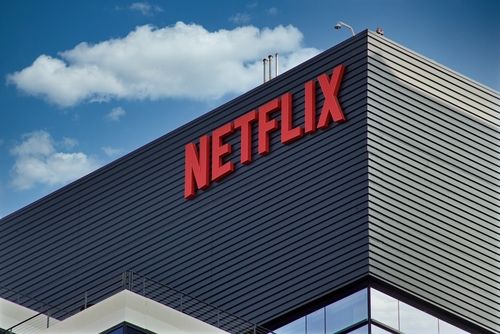- Bitcoin Drops to $70,000. U.S. Government Refuses to Bail Out Market, End of Bull Market or Golden Pit?
- Gold rallies further beyond $5,050 amid flight to safety, dovish Fed expectations
- Bitcoin Bottom Debate: $70,000 or $50,000?
- A Crash After a Surge: Why Silver Lost 40% in a Week?
- Bitcoin Slips Below 75,000 Mark. Will Strategy Change Its Mind and Sell?
- Bitcoin Rout. Bridgewater Founder Dalio Publicly Backs Gold.

Netflix (NASDAQ: NFLX) may be the forgotten big tech stock to some.
After all, the streaming giant was once a member of the vaunted FAANG group of stocks, an acronym for the elite tech stocks that dominated much of the last decade. However, Netflix is the only stock from that group to not be included in the "Magnificent Seven," the rebranded elite group of tech stocks.
But investors may want to reconsider Netflix's membership after its recent performance as the streaming stock is having a banner year, up 82% as the company's efforts in advertising and preventing password sharing have paid off, and it's left its legacy media competitors in the dust. In recent days, the stock has continued to climb on a positive reaction to the Jake Paul-Mike Tyson fight and on hopes that Netflix will move further into live sports and events.
Along the way, Netflix's share price has surged and it could top $1,000 a share by the end of the year. It closed on Nov. 20 with a share price of $883.85, one of the highest share prices of any stock on the S&P 500, making it a candidate for a stock split.
Companies split their share prices from time to time primarily to make them affordable to individual investors and employees. Stock splits can also make options trading easier and even allow some stocks to join the Dow Jones Industrial Average. Stock splits also act like a milestone for share price growth, and investors tend to respond positively for that reason, though they don't change the fundamentals of the company or the stock. They just divide the "pie" into more pieces. Instead, of having one quarter of the pie, for example, you now have two eighths. It's the same percentage, but more pieces, or shares.
So will Netflix split its shares? Let's take a look at the case for a Netflix stock split.

Image source: Getty Images.
Netflix's stock split history
Netflix has split its stock twice in its history: a 2-for-1 split in 2004 and then a 7-for-1 split in 2015.
At the time of its 2015 split, Netflix was trading at around $700 a share. Back in 2004, Netflix only needed to reach $72 a share to enact a 2-for-1 split.
Netflix was a much smaller company then and was under different management, but historically the company has chosen to split its stock rather than let it get this high.
Why a split would make sense
Netflix has built a lot of momentum this year as its subscriber base has soared and regained its earlier mojo. However, the stock doesn't get the same amount of attention it did in the 2010s when it was growing rapidly.
A stock split could help Netflix get back some of its buzz as stock splits have a tendency to do. (Just take a look at Nvidia, for example, which split its shares earlier this year.)
As mentioned earlier, while stock splits don't change the fundamentals of a stock, they do make individual shares more affordable to retail investors. There's also some evidence that stocks tend to do better after announcing a spilt, according to a report from Bank of America. It's unclear why that is, but it could be simply because companies that split their shares are already doing well on the market. Management also chooses the timing of a stock split, and if it doesn't have confidence that the stock will continue to go up, it's unlikely to enact a split.
Given its momentum and excitement about advertising and live sports, Netflix looks set to continue going higher.
Will Netflix split its stock?
Netflix management hasn't addressed splitting its stock, and the stock only recently crossed the $800 share price mark. However, enacting a stock split seems more likely than not. Netflix has a history of splitting its stock when the share price gets that high, and the stock also seems poised to keep moving higher, which could convince management to do a split.
Ultimately, investors should consider the stock based on its fundamentals like its growth opportunities and valuation rather than its chances for a split, but a split could put the stock back in the limelight, helping to lead to another leg up for Netflix.
Read more
* The content presented above, whether from a third party or not, is considered as general advice only. This article should not be construed as containing investment advice, investment recommendations, an offer of or solicitation for any transactions in financial instruments.






